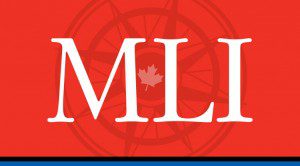 Canada’s history of abuses against groups such as indigenous peoples and Acadians can’t be ignored, writes Noah Richler.
Canada’s history of abuses against groups such as indigenous peoples and Acadians can’t be ignored, writes Noah Richler.
This item is based on the motion “Canada’s history is nothing to be ashamed of”, which was up for debate at the Great Canadian Debates on March 28. Richler argued against, while Jack Granatstein argued in favour.
By Noah Richler, April 7, 2017
It is consistent to love one’s country but also to find shame in its history. Moreover, the reconciling of pride and shame is a matter of necessity.
If, at its best, our history has led to “the fair country” and a consideration of the other that has vaulted forward Canadians’ excellence in the field of human rights, so does it have a dark side.
For alongside a history of negotiation and compromise that arose because the territory we call “Canada” was always too large and obdurate to conventionally conquer and manage, are acts of erasure and abuse inextricable from this country’s foundation.
I will not bore you. It is an achievement for Canadians (if not their senators) to be unaware of shameful chapters in our history, so among the several to choose from – the turning away of the Komagata Maru and then the MS St. Louis and these ships’ human cargoes of South Asian and Jewish refugees are a couple of others – I’ll mention three.
Shame is what the experience of Africadians, and the slaves and black United Empire Loyalists who preceded them, must engender. Shame is what the grand derangement or deportation, in 1755, of Acadians that was a first act of ethnic cleansing, should bring on. Shame is what the persistently criminal abuse, maltreatment and insufficient resourcing of First Nations has to prompt.
Jack Granatstein, who has written of his resentment of “the grievers among us, the present-day crusaders against public policy or discrimination” using our history “to teach a lesson about racism and sexism,” will urge you to consider the context and tell you that the prejudice against First Nations bequeathed by John A. Macdonald and his brethren (that’s the right word, women did not come into it – another source of shame) was typical of the times.
But this does not excuse it, not least because it is not true. Canada’s neglect, and worse, of First Nations – their starvation upon the plains, their subjugation to the Indian Act, and then the criminal underfunding of residential schools designed to erase Indigenous identity and cultures – came three centuries after the human nature of Amerindians was argued by Bartolomé de las Casas in the Valladolid debate of 1550-51. The source of our shame took root, here, at a time when the sort of enlightened views it is utterly reasonable to expect of historical exemplars already existed. It can be found, for instance, in debates that took place in the British Columbian legislature when, in 1870, that colony was considering joining Confederation. (Henry Holbrook and E.G. Alston were among legislators asking that members of First Nations to be accepted as equals).
And if we find nothing in our history to be shameful of, then what point is there in it? Are we only to puff up with pride at battles we ourselves did not fight? If we’re not to feel shame, what right do we have to be proud?
The historian Niall Ferguson, ever an acolyte of Empire, tells us to ask if there was “a better, plausible alternative” when assessing history’s misdemeanours. In all the instances I mention, there were. The ransacking of Acadian homes, separation of families and then their dispersal was a quasi-scientific exercise perpetrated with a view to the elimination of a culture – in reality, it enforced it – and was unnecessary. The racism black United Empire Loyalists experienced was so egregious that when John Clarkson arrived in Nova Scotia in 1791 looking for recruits to save Sierra Leone, the West African colony for freed slaves, the British abolitionist was quickly oversubscribed and cut his tour short. Mr. Clarkson was, in his very being, the symbol of “a better, plausible alternative.”
As for Canada’s relationship with First Nations, Inuit and Métis – well, we are only now in sight of that better, plausible alternative, and there is no doubting shame is the vehicle that has put us here.
The Ancient Greek word for shame is “aidos.” It describes not just guilt but the humility and awe the conscientious person feels in the face of that which is belittling. Shame, a profoundly uncomfortable feeling, is also an edifying one that it’s morally incumbent upon us to acknowledge. Shame is a positive force because coming to terms with it engenders change and the better.
The society that does not engage with the shame in its past cannot be progressive.
Noah Richler is the author most recently of The Candidate, nominated for the 2016 Shaughnessy Cohen Prize. On March 28 in Ottawa, he argued against the resolution “Canadian history is nothing to be ashamed of” at a debate hosted by the Macdonald-Laurier Institute.




